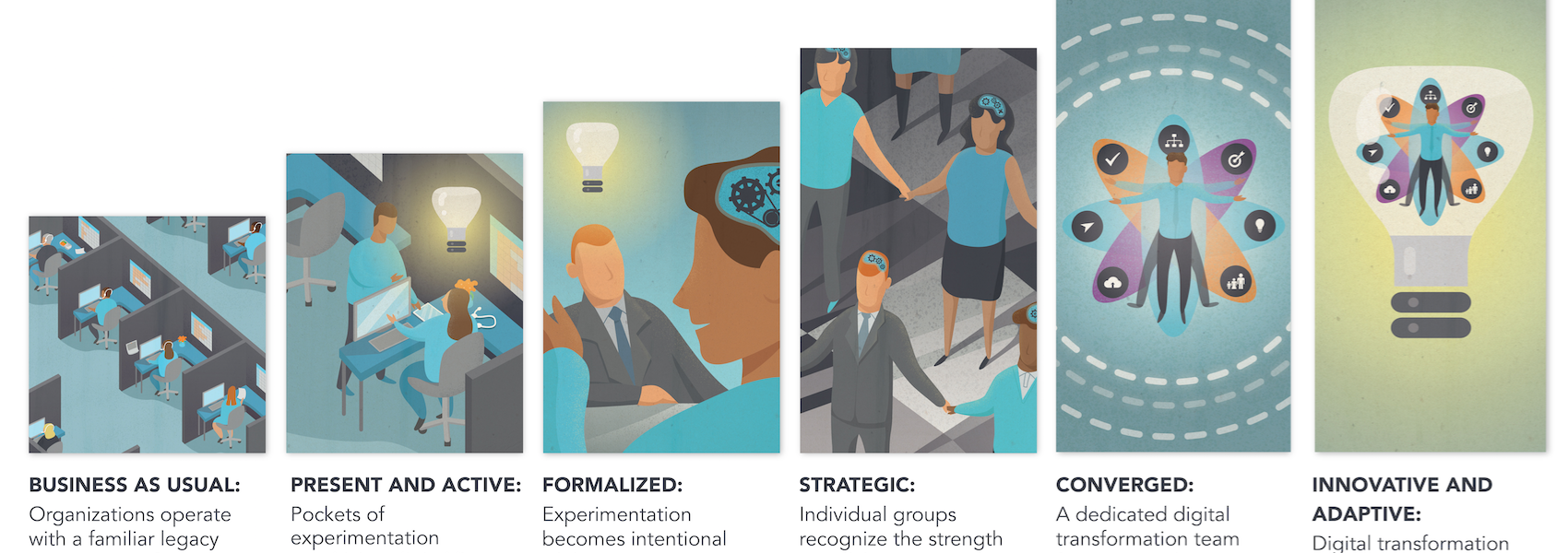
Digital Transformation: Adapting to the Modern Era
In the fast-paced world we live in today, digital technology has become an integral part of our lives. From the way we communicate, work, shop, and consume information, everything has been touched by the advancements in technology. The era of digitalization has not only reshaped industries but has also revolutionized the way businesses operate.
Understanding Digital Transformation
Digital transformation refers to the process of incorporating digital technologies into various aspects of a business, fundamentally changing how it operates and delivers value to its customers. This transformation encompasses the adoption of disruptive technologies like cloud computing, artificial intelligence, big data analytics, Internet of Things (IoT), and more.
Embracing Change for Success
In the face of rapid technological advancements and evolving consumer demands, businesses that fail to embrace digital transformation risk falling behind their competitors. Adapting to the modern era not only allows businesses to stay relevant but also opens up a realm of opportunities.
Improved Efficiency and Productivity
One of the significant benefits of digital transformation is the opportunity to streamline and automate business processes. By incorporating digital tools and platforms, organizations can eliminate manual tasks, reduce human error, and enhance overall efficiency and productivity. This opens up possibilities for innovation, speed, and agility within the business.
Enhanced Customer Experience
In the modern era, customer experience is paramount. By leveraging digital technologies, businesses can better understand their customers’ preferences and behaviors, enabling them to personalize their offerings, provide targeted marketing campaigns, and improve overall customer satisfaction. This creates a competitive edge by building stronger customer relationships and brand loyalty.
Unlocking Valuable Insights
The vast amounts of data available in the digital world provide valuable insights for businesses. By implementing advanced analytics tools, companies can extract meaningful information from this data, enabling them to make data-driven decisions, identify trends, and uncover new opportunities. This data-driven approach leads to more accurate predictions and better strategies.
Embracing Innovation and Adaptability
Technology is constantly evolving, and businesses need to stay ahead of the curve to remain competitive. Digital transformation allows companies to embrace innovation and adapt to changes in the market. This flexibility enables them to quickly respond to emerging trends, consumer demands, and industry disruptions, ensuring they stay relevant and thrive in the modern era.
Challenges and Considerations
While digital transformation opens doors to numerous opportunities, it also comes with its fair share of challenges. Organizations must carefully consider factors such as data security and privacy, infrastructure upgrades, employee training, and change management. Overcoming these challenges requires a strategic approach and collaboration between various stakeholders.
In Conclusion
Digital transformation is no longer a choice but a necessity for businesses to survive and thrive in the modern era. By embracing digital technologies and adapting to the ever-changing landscape, organizations can unlock new possibilities, improve efficiency, enhance customer experiences, and uncover valuable insights. It’s time to embrace the digital revolution and embark on a transformative journey towards a successful future.



